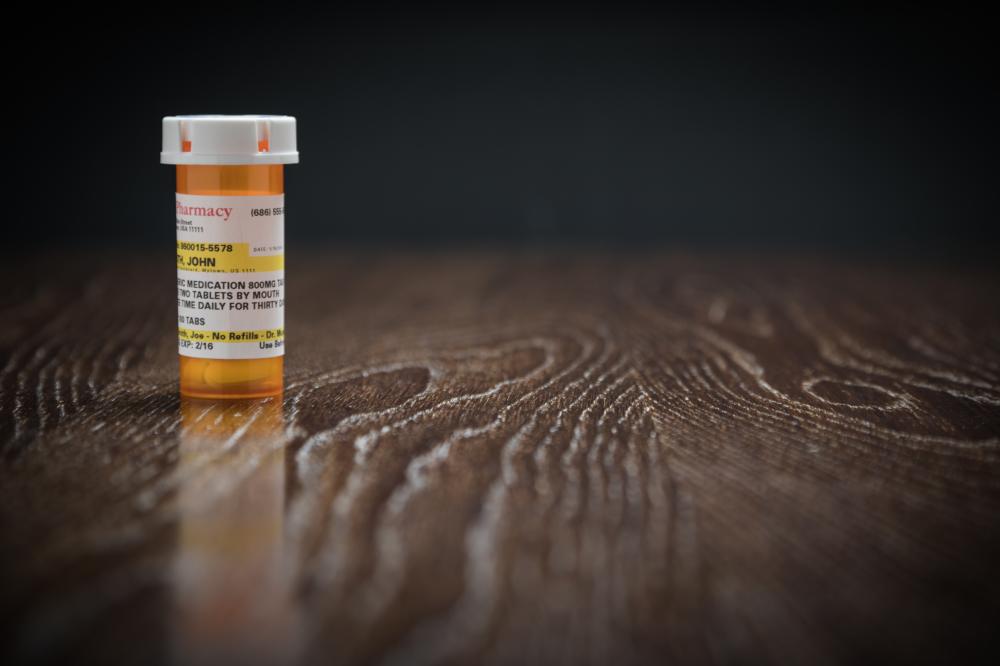The Importance of Medication-Assisted Treatment
Medication-Assisted Treatment (MAT) represents a progressive approach to tackling opioid addiction, offering a combination of medication and behavioral therapies to those in need. MAT is designed to treat the whole person, addressing both the physical dependence on opioids and the behavioral patterns associated with addiction.
At the heart of this treatment is the use of medications like Suboxone, Vivitrol, and Sublocade, which work to alleviate withdrawal symptoms and reduce cravings. These medications are used under the supervision of medical professionals, ensuring a safe transition away from opioid use.
The efficacy of MAT is supported by numerous studies, and it has been endorsed by major health organizations worldwide as an effective treatment protocol. By reducing the chances of relapse and improving overall patient outcomes, MAT provides a lifeline for individuals struggling with opioid addiction.
Suboxone’s Role in Opioid Recovery
Suboxone is a key player in the MAT scene, bringing together buprenorphine and naloxone to combat opioid dependency. This combination works by attaching to opioid receptors in the brain, alleviating withdrawal symptoms while preventing the euphoric high associated with opioid use.
The unique formulation of Suboxone allows individuals to focus on recovery without the overwhelming burden of cravings. Patients often find they are better able to engage in therapy and other recovery activities with the help of Suboxone.
Suboxone MAT Pleasant View can be administered in various forms, including sublingual films or tablets, offering flexibility and convenience to patients. Its success in facilitating recovery underscores its importance in the broader context of MAT strategies.
Crafting Personalized Treatment Plans
Recovery Now, LLC believes in the power of personalized treatment plans, understanding that each patient’s journey through recovery is unique. This approach begins with a comprehensive assessment of an individual’s physical and mental health, as well as their history of substance use.
These assessments inform the creation of tailored treatment plans that address the specific needs of each patient. This personalization ensures that treatment is both effective and sustainable, reducing the likelihood of relapse and enhancing overall recovery outcomes.
Patients at Recovery Now are engaged in every step of their recovery plan, fostering a sense of empowerment and commitment to their journey. By focusing on individual strengths and challenges, Recovery Now offers a supportive and adaptable approach to overcoming opioid addiction.
Integration of Therapy and Medication
While medications like Suboxone play a vital role in MAT, the integration of behavioral therapy is equally crucial. This combined approach addresses the underlying causes of addiction, helping patients develop the skills necessary for long-term sobriety.
Therapy sessions at Recovery Now may include cognitive-behavioral therapy, motivational interviewing, and other evidence-based practices that support recovery. These therapies help patients understand their addiction, identify triggers, and build coping strategies.
By bringing together medication and therapy, Recovery Now creates a holistic treatment experience that supports the physical, emotional, and psychological needs of each patient. This comprehensive care model is essential for sustained recovery and improved quality of life.
Embracing Telemedicine Options
For those unable to access traditional in-person care, Recovery Now offers innovative telemedicine solutions. This allows patients to consult with addiction specialists remotely, ensuring they receive consistent care regardless of their location.
Telemedicine is particularly beneficial for individuals in rural areas or those with mobility challenges, reducing the need for extensive travel. Patients can engage in therapy sessions, receive medication management, and maintain contact with their care team from the comfort of their home.
By leveraging technology, Recovery Now is able to extend its reach and support more individuals in their fight against opioid addiction. This flexibility in care delivery underscores Recovery Now’s commitment to accessibility and comprehensive patient support.
Stages of Suboxone Therapy
The journey through Suboxone therapy at Recovery Now is structured into several key phases, each designed to support different stages of recovery. These stages include the Induction Phase, Stabilization Phase, and Maintenance Phase.
During the Induction Phase, patients begin taking Suboxone under medical supervision, transitioning from opioid use to a stabilized state. The Stabilization Phase focuses on refining the dosage and integrating therapy, ensuring patients are comfortable and supported.
Finally, the Maintenance Phase emphasizes long-term health and recovery, with ongoing therapy and support tailored to each individual’s progress. This phased approach ensures a comprehensive and effective treatment plan, leading patients towards lasting sobriety.
Stories of Success at Recovery Now
Recovery Now has helped countless individuals overcome opioid addiction, and patient testimonials highlight the impact of personalized care and support. Many patients express gratitude for the compassionate and professional approach of the Recovery Now team.
One patient, James, describes his experience as transformative, noting how Recovery Now “understands the struggle and goes the extra mile.” Another patient, Beth, shares her journey of overcoming pain pill addiction, attributing her fresh start in life to the tools and guidance provided by Recovery Now.
These stories of success underscore the effectiveness of Recovery Now’s approach, showcasing the positive outcomes achieved through dedicated care and innovative treatment solutions.
Accessibility and Affordability
Recovery Now strives to make treatment accessible and affordable for all patients, working with major insurers to provide coverage for comprehensive care. This commitment to affordability ensures that more individuals have access to the support they need without financial barriers.
By being in-network with all major insurers, Recovery Now reduces out-of-pocket costs for patients, making high-quality addiction treatment a viable option for many. This broad coverage is crucial for reaching a wider population and addressing the opioid crisis effectively.
The transparency in billing and insurance processes at Recovery Now further supports patients in navigating their treatment journey, providing peace of mind and allowing them to focus on recovery.
Supporting Long-Term Recovery
At Recovery Now, the focus is not only on immediate treatment but also on supporting patients through their long-term recovery journey. This involves ongoing therapy, regular check-ins, and continuous evaluation of treatment plans to ensure they meet evolving needs.
Patients are encouraged to participate in support groups and community activities, fostering a sense of belonging and continued motivation. Recovery Now’s commitment to long-term support is evident in its comprehensive aftercare programs and resources.
By providing a structured yet adaptable recovery process, Recovery Now helps patients maintain their sobriety and transition to a healthier, fulfilling life free from opioid dependence.
What to expect in a MAT program?
Embarking on a Medication-Assisted Treatment (MAT) program at Recovery Now, LLC is a supportive and empowering experience. From the moment you step through our doors, you’ll be met with a team of caring professionals dedicated to your success. Our comprehensive MAT approach combines medication like Suboxone with behavioral therapy, ensuring you have the tools needed for a holistic recovery.
During your initial visits, our addiction specialists will conduct a thorough assessment of your medical history and substance use patterns to develop a personalized treatment plan tailored to your specific needs. This plan will guide your journey, encompassing the Induction, Stabilization, and Maintenance phases, each focusing on different aspects of recovery. Alongside medication management, you’ll participate in various therapy sessions designed to address underlying behavioral patterns contributing to addiction.
Recovery Now also offers telemedicine services, providing you with flexibility and continuous support, even from the comfort of your home. As part of our commitment to accessibility, we work with major insurers to reduce financial barriers, ensuring you can focus entirely on your healing journey.
Consider what recovery could mean for you. How might your life change when you no longer struggle with opioid reliance? We’re ready to walk this path with you, every step of the way.
What is MAT drug recovery?
MAT drug recovery at Recovery Now involves a comprehensive treatment strategy that combines FDA-approved medications with behavioral therapies to treat opioid use disorder. Medications like Suboxone are pivotal in easing withdrawal symptoms and reducing cravings, allowing individuals to focus on the psychological aspects of recovery.
Our approach recognizes addiction as a chronic disease and provides a supportive environment where patients can address the root causes of their substance use, develop coping strategies, and ultimately sustain long-term sobriety. By integrating medication with therapies such as cognitive-behavioral therapy and motivational interviewing, we ensure a balanced and effective recovery process.
Recovery Now’s commitment to personalized care means each patient receives a customized plan that respects their unique journey and goals. Engaging in MAT at Recovery Now is about more than just physical recovery–it’s about rebuilding lives and fostering hope.
Reflect on how recovering through MAT might influence your relationships and future aspirations. What opportunities does a life free from addiction open up for you?
What is Suboxone prescribed for?
Suboxone is primarily prescribed for the treatment of opioid use disorder. It combines two active ingredients, buprenorphine and naloxone, to manage withdrawal symptoms and cravings while preventing misuse. Buprenorphine reduces withdrawal symptoms by binding to the brain’s opioid receptors, whereas naloxone acts as a deterrent against misuse.
At Recovery Now, Suboxone is a cornerstone of our Medication-Assisted Treatment program. We find that it allows our patients to maintain focus on recovery activities such as therapy and support groups without the overpowering distraction of cravings.
Beyond its clinical benefits, Suboxone offers a sense of stability in a recovering individual’s life, facilitating their integration back into everyday activities and commitments. If you’re considering Suboxone as part of your treatment, think about how managing cravings and withdrawal symptoms might enhance your recovery experience.
What is MAT induction?
MAT induction is the initial phase of treatment at Recovery Now, where patients begin their journey towards recovery by starting Suboxone or another medication under medical supervision. This phase is critical for stabilizing the patient’s condition, as they transition from active opioid use to a managed state with reduced withdrawal symptoms.
During induction, our professionals carefully monitor your response to medication, adjusting dosages as necessary to ensure comfort and effectiveness. This personalized attention helps set a solid foundation for the subsequent stages of the recovery process.
The induction phase is often both a physically and emotionally transformative period, filled with new challenges and insights. As you advance in your treatment, consider how support from healthcare providers can promote confidence and motivation during this crucial time.
How does Recovery Now integrate therapy and medication in MAT?
Integration of therapy and medication is a defining feature of the treatment approach at Recovery Now. By combining Suboxone with various evidence-based therapies, we provide a comprehensive recovery framework that addresses both the physical and psychological aspects of addiction.
Our therapy sessions, including cognitive-behavioral therapy and motivational interviewing, are crafted to empower patients with the skills needed to confront and overcome addictive behaviors. These therapies help identify triggers and develop coping mechanisms crucial for sustained sobriety.
By blending medication with therapy, Recovery Now ensures that patients receive full-spectrum care, equipping them for long-term success. Consider how a combined approach could potentially transform your understanding and management of addiction. What new perspectives might you gain through this integrated treatment path?


